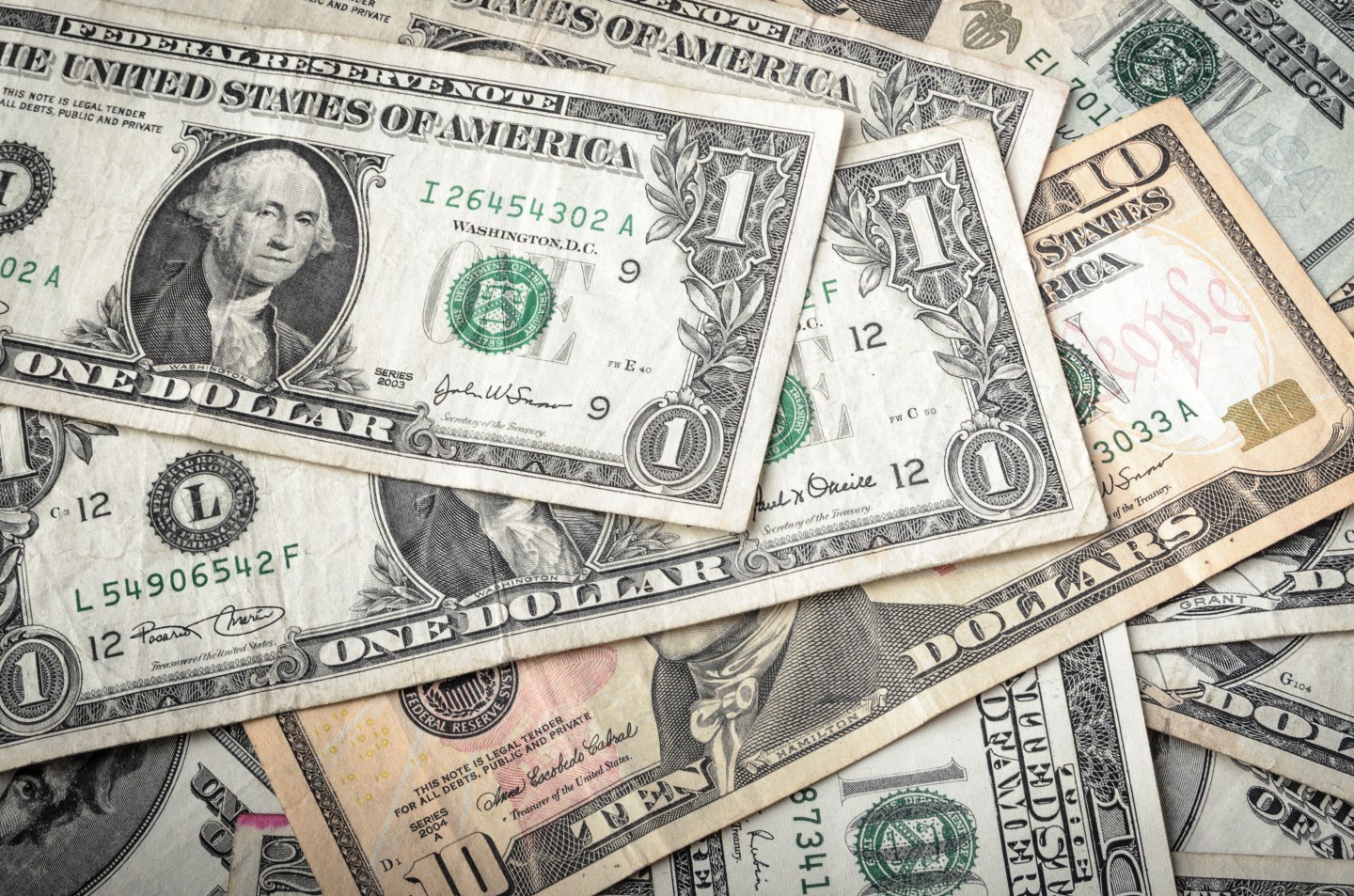The U.S. dollar has turned into something of a bouncing ball in Davos this week. The currency dipped Wednesday after Treasury Secretary Steven Mnuchin applauded a weakening of the dollar—only for it to inch back up after President Donald Trump said he would like to see it strengthen.
“The dollar is going to get stronger and stronger, and ultimately I want to see a strong dollar,” Trump told CNBC at the World Economic Forum in Davos, Switzerland Thursday. “Our country is becoming so economically strong again and strong in other ways, too.”
Trump added that he thought Mnuchin’s comments had been taken out of context, helping the U.S. dollar tick upward to 89.3 against a basket of currencies. At the same time, Trump’s comments also pared some of the Dow Jones industrial average’s gains, with the index rising to a new closing high of 26,393.
The dollar, which is often seen as a proxy for confidence in the U.S. economy, slipped to a three-year low of 88.4 Wednesday against a variety of currencies after Mnuchin said “a weaker dollar is good for us as it relates to trade and opportunities. Longer term, the strength of the dollar is a reflection of the strength of the U.S. economy and that it is, and will continue to be, the primary reserve currency.”
Those dynamics aren’t especially controversial, with U.S. goods looking cheaper abroad when the dollar softens—boosting sales. Traditionally, past treasury secretaries have stuck with extolling the benefits of a stronger dollar, leading investors to interpret Mnuchin’s comments as a sign of a new position for the U.S.
The backlash was quick, with Ray Dalio, founder of the hedge fund Bridgewater, noting the flip side of the argument on LinkedIn, saying that a weaker dollar would reduce Americans’ buying power abroad.
“None of this is what the U.S. economy needs now,” he wrote.
Economist Lawrence Summers wrote an op-ed in the Washington Post, saying Mnuchin “fails on style and substance.”













